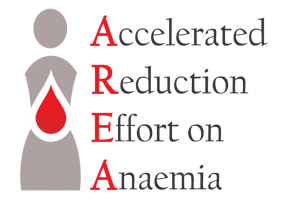The UN Decade of Action on Nutrition 2016-2025
Accelerated Reduction Effort on Anaemia Webinar

26 November 2019 from 15:00 to 16:00 CEST ( 09:00-10:00 EDT)
On Tuesday November 26th the Accelerated Reduction Effort on Anaemia (AREA) Community of Practice (CoP) is hosting the webinar: Simultaneous implementation of interventions to prevent anaemia. Are there any risks?
The webinar will explore this topic through a discussion with Professor Stanley Zlotkin and Dr Reina Engle-Stone.
More information can be found at the WHO Nutrition website here
Registration can be found here
Simultaneous implementation of interventions to prevent anaemia. Are there any risks?
Nutritional anaemias co-occur in various population groups. Thus, it is desirable to implement a combination of essential nutrition actions to address this public health problem, but it may lead to potentially excessive intakes of one or more micronutrients. This is especially relevant in settings where multiple stakeholders work to deliver public health interventions such as fortification of staple foods, biofortification and iron supplementation.
The excessive consumption of iron could have harmful consequences on the health and development of individuals and populations. They range from mild gastrointestinal side effects to increased risk of preterm delivery.
As interventions to reduce anaemia scale-up, several questions arise: Are the safety concerns justified? Is it possible to estimate the risks of delivering multiple interventions? If so, how?
Join the webinar to discuss this topic by registering here. You can also register to become a member of the AREA CoP, by clicking on the following link:
The Community of Practice (CoP) aims to support members of the global community dedicated to improving and scaling up existing methods and strategies for anaemia reduction in a holistic and cohesive manner; to build consensus for engagement in AREA at the global, regional and national level and commit to the achievement of the Global Nutrition Targets 2025 endorsed by the 65th World Health Assembly.








